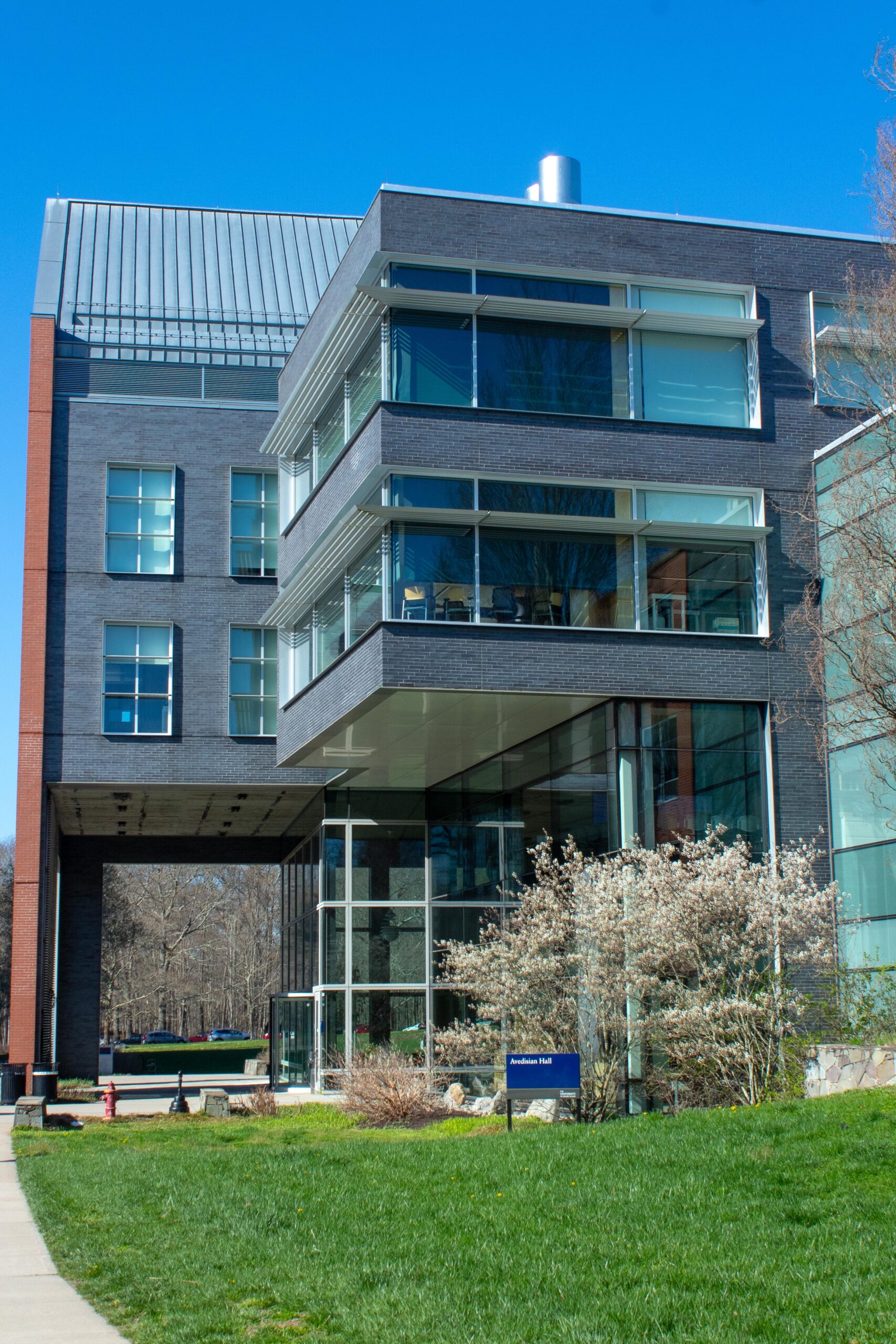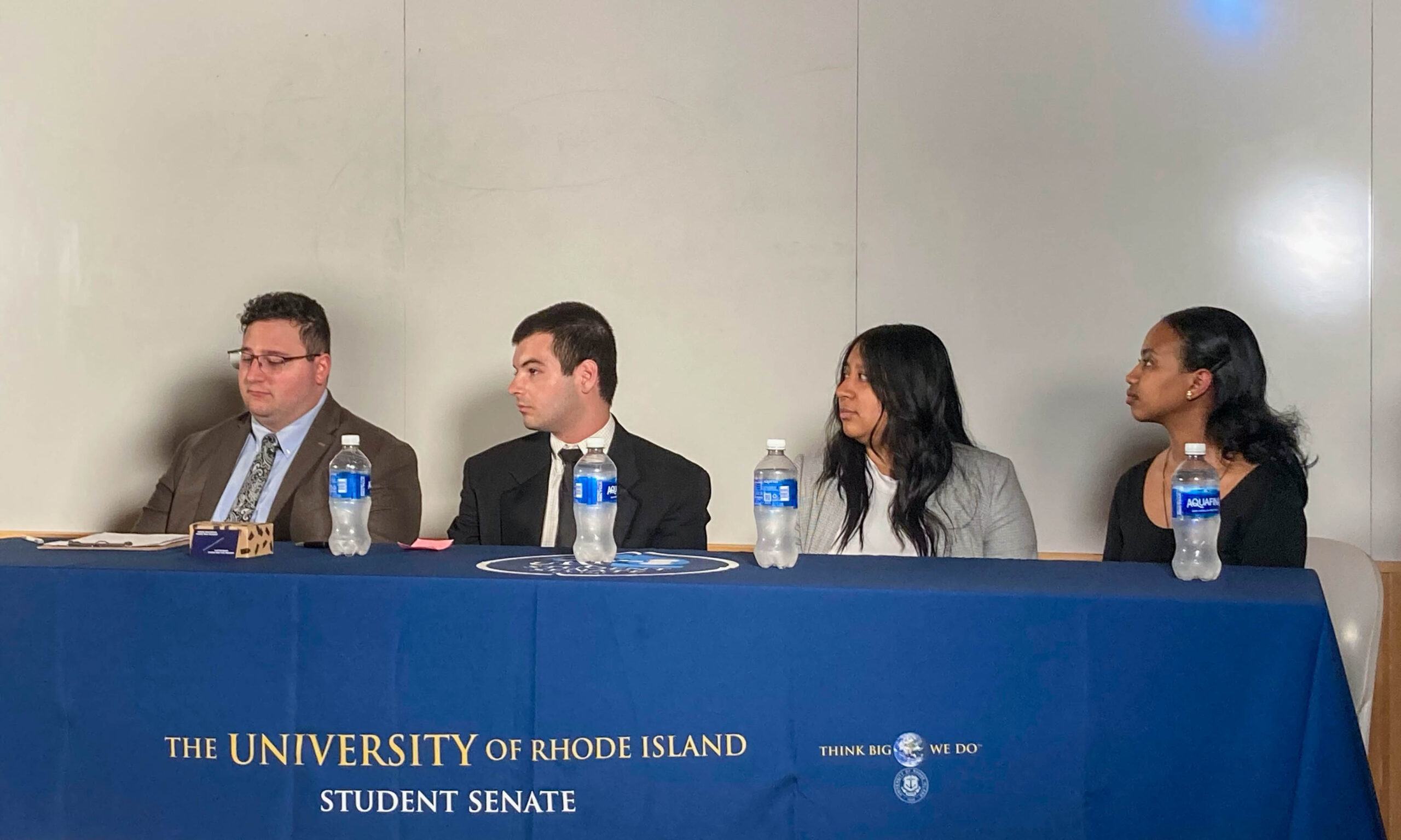The University of Rhode Island’s Doctor of Pharmacy program is ranked 31 among 141 pharmacy colleges in the United States, the college’s highest rank yet.
The University’s Pharm.D. program has risen steadily for the past four years, taking the number 40 spot in the last survey in 2020, and number 46 in 2016, according to Rhody Today .
“You don’t usually just drop nine spots, so that’s pretty impressive,” Kerry LaPlante, dean of the College of Pharmacy, said. “I am so excited, and everyone feels really proud.”
The rankings are based on the college’s reputation, LaPlante said. She believes that Paul Larrat, the previous dean of the College of Pharmacy, created this positive reputation.
“Obviously our reputation has improved over the years, and a big part of that is the communication,” Larrat said. “We’re letting people know all the good things about our programs in a more effective way.”
Growing the College of Pharmacy’s programs and research initiatives was a major goal during Larrat’s 10 years as dean, he said. He built a team of professors and assistant professors that strengthened the college’s research in neuroscience and pharmacology.
In addition, Larrat and LaPlante both believe that positive alumni and faculty ratings demonstrate the College of Pharmacy’s increased diversity.
When Larrat graduated from URI in 1982, the program was about 75% males who were mostly white, he said. Now, the profession has grown in diversity with higher percentages of women.
“It’s great for the University and the profession because we are training these folks and then they go back to their communities, and you can imagine how effective they are,” Larrat said.
LaPlante also attributes the rise in rankings to the college’s faculty, staff, students and alumni, who bring profound dedication and appreciation, she said.
There is a sense of pride that students and staff have about the college’s building, Paramaz Avedisian Hall, which is upheld by the facilities management team, LaPlante said. The state and atmosphere of the building follows the Pharm.D. program’s motto of improving quality of life.
As students become alumni, their experiences with staff and faculty also create this feeling of pride, LaPlante said.
“It’s a feeling that doesn’t come easily,” LaPlante said. “Their long standing passion and commitment to the college showed when they were voting for us.”
The College of Pharmacy ranking relies on peer assessments from administrators and faculty members at accredited degree schools, according to a News and World Report article . Respondents rated the quality of academics, location, environment, cost and job placement.
99% of URI Pharm.D. students were employed after graduation, according to the 2023 American Association of Colleges of Pharmacy graduating student survey . 96% of students had a residency placement and 94% graduated on time.
The survey also concluded that 98% of alumni would choose URI again, contributing to a supportive alumni network of over 6,800 people.
In addition, the College of Pharmacy received over $21 million last year in research funding — number one out of all New England colleges of pharmacy, according to an AACP article .
URI’s Pharm.D. program alumni, because of their dedication and support, have started reaching out to LaPlante about setting up scholarships, she said. There have been two or three discussions of scholarships in the past few weeks, although none are confirmed.
Besides scholarships and prestige, LaPlante hopes students will see another benefit of the College of Pharmacy’s new rank: provider status upon graduation.
Provider status means that graduated pharmacy students can write for prescriptions, and is a goal that LaPlante is working towards, she said. Students upon graduation know how drugs work, how they interact and when they are needed. Allowing them to write and distribute medications would then mitigate current issues of healthcare access.
“I don’t know if you have any grandparents or aunts and uncles, but just ask them about their medication,” LaPlante said. “They’ll talk to you for an hour.”
Managing medications is a burden, and with such limitations on who prescribes them, combined with supply chain issues, many people aren’t getting their medications, LaPlante said.
“Access is a forgotten issue in healthcare,” Larrat said.
Larrat believes letting pharmacists prescribe medication allows them to be a helping hand to those who can currently write prescriptions.
The American Medical Association’s regulations limit nurses, nurse practitioners, physicians assistants and pharmacists from prescribing medications, LaPlante said. They think that physicians should be the only ones to write prescriptions.
“AMA really needs to stop other providers from helping support patients who need access to medications,” LaPlante said. “And I think pharmacists are the most underutilized healthcare professionals out there. We could be doing more.”
URI’s Pharm.D. program’s vision is to advance and transform communities, LaPlante said. Having students gain provider status upon graduation is one way that she seeks to do so.




